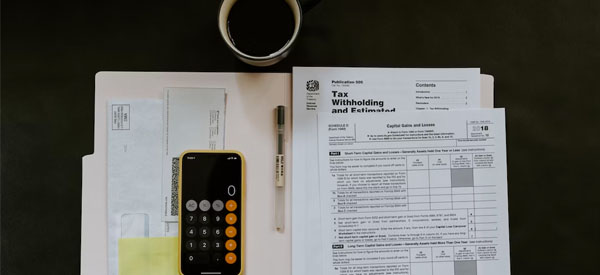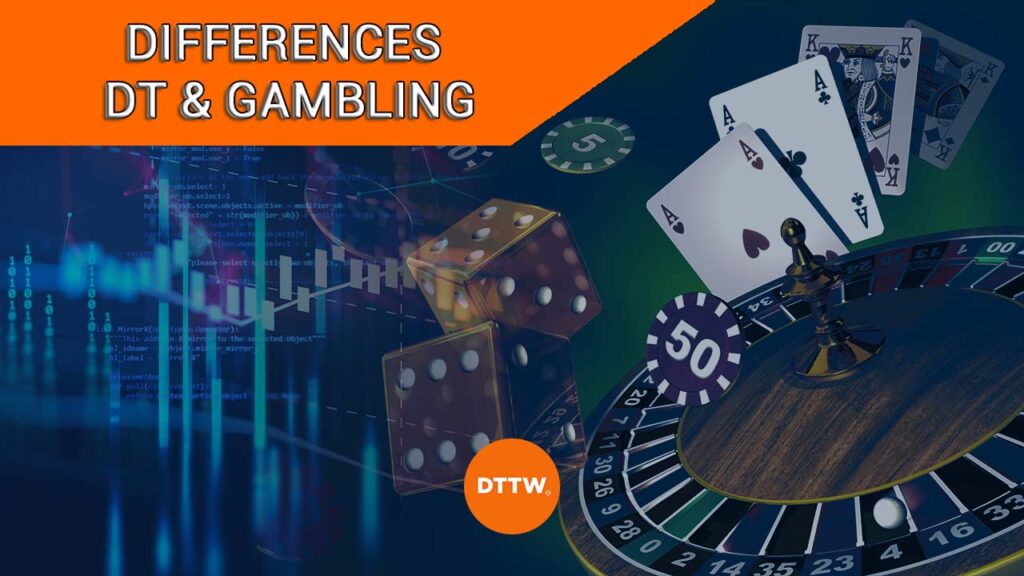Day trading is a unique form of investing that has become increasingly popular in recent years. You might ask, is day trading gambling?
Unlike gambling, it involves careful analysis and research to identify profitable trades. Traders must have the discipline to follow their strategies even when things don’t go according to plan.
This makes it much different than gambling where luck plays a major role in success or failure. In this article, we’ll cover several topics, including:
- Laws and Regulations
- Legal framework for each activity
- Differences in regulations
- Regulation in different US states
- Taxation and reporting
- Risk and skill factors
Table of Contents
Laws and Regulations
Day trading and gambling may have some similarities, but there are also key differences in terms of laws and regulations. Here we’ll tell you why trading is not gambling. It is the practice of buying and selling securities within a single day’s time frame, while gambling involves placing bets on uncertain future outcomes.
When it comes to laws and regulations, traders must adhere to stringent guidelines set by regulatory bodies. This includes filing disclosure documents with the regulatory bodies prior to engaging in any trading activities.
On the other hand, most forms of recreational betting do not require registration or reporting requirements like those associated with day trading. Remember to always check your local laws before making any decisions about participating in either activity.
Related » Which Strategies for Gambling Can Bring Stock Trading Success?
Legal Framework for day trading and Gambling
Day trading and gambling are two activities that may seem similar on the surface, but they differ in important ways. Do you wonder why is day trading legal and not gambling? Keep reading.
Day trading is regulated by financial authorities such as the SEC (Securities Exchange Commission) in America which sets out rules for how trades must be conducted including margin requirements, capital gains taxes, etc. In the meantime, gambling regulations vary depending on the states and local laws.
Differences in regulations and licensing requirements
You might ask how is day trading different from gambling? The main difference between trading and gambling lies in regulations and licensing requirements.
Gambling is heavily regulated by both state governments as well as federal laws to protect consumers from fraud or abuse of their funds. Licensing requirements for casinos vary depending on the jurisdiction but typically include several checks.
In contrast to this stringent regulation surrounding gambling activities, traders are subject only to basic securities laws which require them to register with the SEC.
Regulation in different US states
While gambling and day trading involves taking risks with the potential to make a profit, day trading is governed by laws that regulate financial markets. However, in this day trading vs gambling article, we can find that gambling is regulated differently depending on the state.
In Michigan, for example, there are specific regulations governing traders who want to buy and sell stocks or other investments within a single business day. Traders must adhere to certain rules regarding margin accounts and short sales. In Michigan, traders also need approval from their broker-dealers before engaging in any day trades.
Related » The PDT Rule Explained
On the other hand, gambling involves risking money or something else of value on an uncertain event whose outcome may depend largely upon luck rather than skill or knowledge.
Gambling regulations vary widely across US states; some states have legalized it completely while others restrict access significantly (such as prohibiting it altogether). When it comes to Michigan gambling law specifically, however, there do exist legal forms of gaming including casino games like poker along with horse racing wagering.
Related » Day Trader vs Casino Player
They can be done either at physical locations like racetracks around Detroit or via various websites offering real-time odds and lines for players looking to bet remotely from home if desired.
Ultimately then when comparing these two activities side by side one key difference stands out: whereas day trading has specific regulatory guidelines and is regulated by federal law, gambling remains subject mainly just local jurisdiction meaning.
Regulations in Canada
Day trading is a form of investing that differs from gambling in several ways. In Canada, day traders must adhere to specific regulations and guidelines set out by the Canadian Securities Administrators (CSA).
These regulations include requirements for investor education, suitability assessments, disclosure documents, and margin limits.
Additionally, day traders must register with the Investment Industry Regulatory Organization of Canada (IIROC) if they are dealing with clients or in certain securities such as stocks or options.
Related » How to Day Trade in Canada
By contrast, gambling activities do not have any regulatory oversight in Canada. Thus there is no requirement for registration or adherence to any kind of rules and standards.
As well as this difference in regulation between day trading and gambling activities, there are also differences related to risk management – while both involve taking risks on investments/bets respectively – successful day traders use a variety of strategies designed to minimize their losses through careful analysis.
In contrast with day traders, gamblers rely more heavily on luck when placing bets which can lead them into financial difficulty if they don’t manage their bankrolls responsibly.
Regulations in EU
Regulations in the European Union are designed to protect investors from excessive risk-taking while still allowing them access to capital markets for speculative investments.
Day traders must adhere strictly to rules governing margin requirements, position limits, and account monitoring as well as regulations pertaining specifically to their particular asset class.
These asset classes include derivatives or foreign exchange products. These regulations provide an additional layer of protection for those engaging in this type of investment activity by ensuring that they are aware of all potential risks before entering into any trades.
In terms of EU regulations for these two activities, there are significant differences between them too. Gambling is heavily regulated by laws designed specifically for this purpose while most countries do not have specific legislation governing how people can trade securities during the same-day session – such as those set out by MiFID II (Markets in Financial Instruments Directive).
Individuals who wish to engage in this kind of activity need only follow their local country’s rules regarding taxation-related matters rather than strict guidelines like those found with online gaming sites operating within Europe’s borders.
Taxation and Reporting

The most notable difference when it comes to gambling and day trading is in taxation and reporting: traders must report their gains or losses on their taxes while gamblers do not.
When it comes to taxation, traders have an advantage over gamblers because they can deduct certain expenses related to their business from income taxes.
These include office space costs, computer equipment costs as well as other tools used for data analysis such as software programs or subscription fees for financial information services.
Risk and Skill Factors
While both gambling and day trading involves taking risks – the risks associated with investing through day trading can be managed more effectively thanks largely due its reliance upon skill rather than luck alone.
This makes it a preferable choice over traditional forms like casino gaming where outcomes tend not to depend heavily upon an individual’s expertise level but instead are mostly determined randomly!
Related » A risky bias: gambler’s fallacy
Conclusion
Day trading is a form of investing that requires skill and knowledge, whereas gambling relies solely on luck. Day traders must analyze financial markets to make informed decisions about when to buy and sell stocks, while gamblers rely entirely on chance.
While both activities involve risk, day trading offers the potential for greater rewards due to its focus on making educated decisions rather than relying solely upon fortune or fate.





